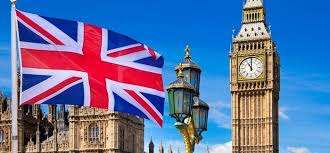UK’s economy has expanded less than earlier estimated, according to revised figures released by the Office of National Statistics (ONS) today, Wednesday, December 22, 2021.
The Gross Domestic Product (GDP) of the United Kingdom (UK) was estimated to have increased by 1.1% in Quarter 3 (July to Sept) 2021, lower than the earlier estimates of 1.3%. The third quarter growth is also lower than the 5.4% recorded in the April to June quarter (Q2) 2021.
Despite the downward revision by the Office for National Statistics, stronger-than-expected data in 2020 means the economy is now closer to pre-pandemic levels.
In line with the National Accounts Revisions Policy, the ONS stated that all quarters from Q1, 2020 onwards are open for revision. The ONS explained that the revisions made in this publication reflect a variety of factors, including new survey data, new Value Added Tax (VAT) turnover data and updates to seasonal factors.
The level of GDP is now 1.5% below where it was pre-coronavirus (COVID-19) at Quarter 4 (Oct to Dec) 2019, revised from the previous estimate of 2.1%, because of upward revisions to growth in 2020. Annual UK GDP in 2020 is now estimated to have fallen by 9.4%, revised from a first quarterly estimate of negative 9.7%.
Significant growth in hospitality sector
According to the Office for National Statistics, the easing of restrictions contributed significantly to the growth in the third quarter as recreation activities picked up despite a fall in both production and construction.
There was a rise in services output by 1.4% in Quarter 3, 2021, revised down from a first quarterly estimate of 1.6%. Services output is now 0.6% below Q4, 2019 levels, the ONS disclosed.
“This growth was mainly driven by increases in accommodation and food service activities (30.7%) and arts, entertainment and recreation (18.7%), following the relaxation of almost all coronavirus public health restrictions on July 19, 2021, including the re-opening of indoor hospitality by varying degrees in England, Scotland and Wales. These were partially offset by wholesale and retail trade, which fell by 2.4%. Elsewhere, health and social work fell by 1.3% in Quarter 3, driven by a 1.6% fall in human health activities”.
Office for National Statistics , UK
Notably, the arts, entertainment and recreation sector has now recovered to above its pre-coronavirus levels by 2.4%, revised from a first estimate of being 5.4% below pre-coronavirus levels. This revision is because of the inclusion of Value Added Tax (VAT) data for Quarter 2 (Apr to June) 2021 for the first time. Most sectors have shown an improvement in their performances compared with their initial estimates except for wholesale and retail trades, and human health and social work, the ONS data show.
Expenditure
Household consumption rose by an upwardly revised 2.7% in Quarter 3, 2021 and made the largest contribution to expenditure; there was a fall in underlying inventories, likely reflecting some of the recent supply chain challenges; and a negative contribution from net trade, the ONS stated.
The UK’s net borrowing position with the rest of the world was -4.3% of GDP in Quarter 3, 2021 compared with negative 2.4% of GDP in Quarter 2, 2021. Household saving ratio decreased to 8.6% in Quarter 3, 2021 compared with 10.7% in Quarter 2, 2021.
“Households’ net lending position in the non-financial account decreased to £13.5 billion (2.3% of GDP) in Quarter 3, 2021 from £23.8 billion in Quarter 2 (4.1% of GDP); the decreased lending was driven by a rise in household spending of 3.3% from the previous quarter. Non-financial and financial corporations both decreased their net lending position to 0.6% as a percentage of GDP in Quarter 3, 2021”.
Office for National Statistics , UK
READ ALSO: BoG Describes Togbe Afede’s Debt, Interest Rates Analyses As “Oversimplification” Of Relationships






















